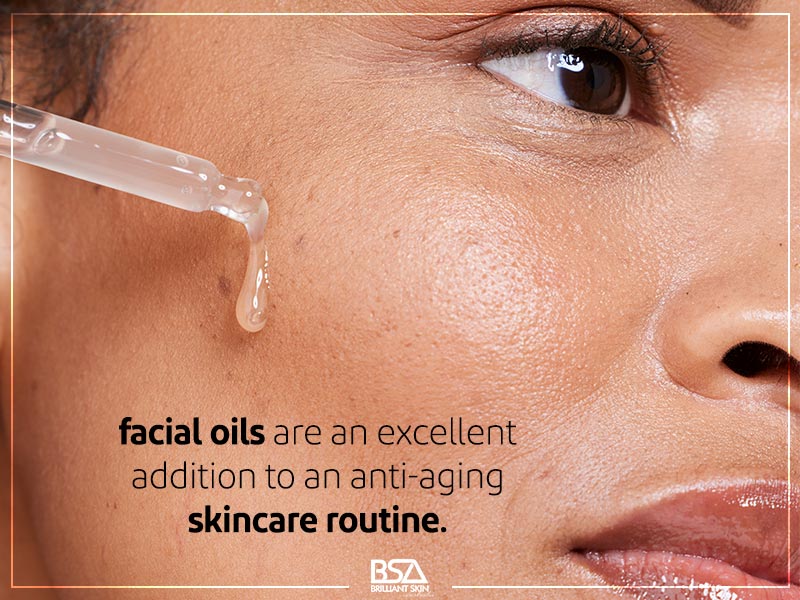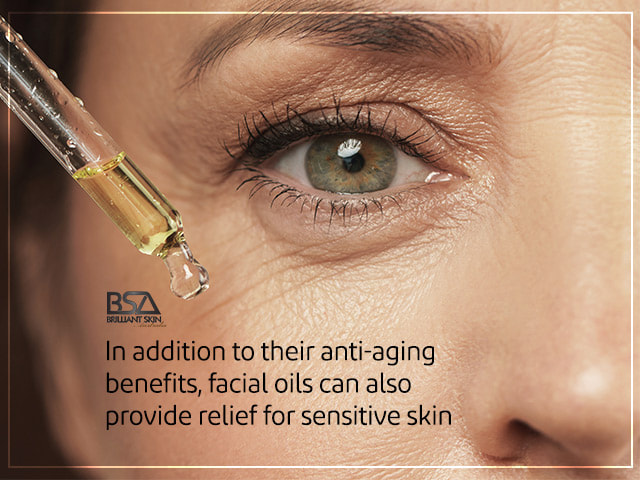The effects of face oil on the skin
- Updated May 24, 2023
- by Honey Seida

Are you looking for a simple way to enhance your skincare routine? Look no further than facial oils! Incorporating a facial oil into your daily routine can provide numerous benefits for your skin. In this article, we'll explore the advantages of using a facial oil and why it's a must-have in your skincare regimen.
The Benefits of Incorporating a Facial Oil into Your Skincare Routine
Firstly, facial oils are an excellent addition to an anti aging skincare routine. As we age, our skin produces less natural oil, leading to dryness and the appearance of fine lines and wrinkles.
Applying a facial oil can help hydrate the skin and prevent these signs of aging. Oils such as argan oil, rosehip oil, and jojoba oil are particularly effective at improving skin elasticity and reducing the appearance of fine lines.
In addition to their anti-aging benefits, facial oils can also provide relief for sensitive skin. If you struggle with redness, irritation, or dryness, incorporating a facial oil into your routine may be the solution you've been searching for. Oils such as chamomile, calendula, and lavender can help soothe and calm sensitive skin, reducing inflammation and leaving you with a healthy glow.
When choosing a facial oil, it's important to consider your skin type and concerns. If you have oily or acne-prone skin, look for lightweight oils such as grapeseed or rosemary oil, which won't clog your pores. On the other hand, if you have dry or mature skin, opt for richer oils such as avocado or argan oil.
To incorporate a facial oil into your routine, simply apply a few drops after cleansing and toning, before moisturizing. You can also mix a drop or two with your moisturizer for added hydration. Remember, a little goes a long way, so start with a small amount and build up as needed.
How Often Should I Use a Facial Oil?
The frequency with which you should use a facial oil depends on your skin type and personal preferences. As a general rule, it's recommended to use a facial oil once or twice a day, ideally after cleansing and toning and before moisturizing.
If you have dry or mature skin, you may benefit from using a facial oil twice a day to provide extra hydration and nourishment. On the other hand, if you have oily or acne-prone skin, you may prefer to use a facial oil once a day or every other day to avoid clogging your pores.
It's also important to remember that a little goes a long way when it comes to facial oils. Start with a small amount and build up as needed to avoid using too much and leaving your skin feeling greasy or oily. With a little experimentation, you should be able to find the perfect frequency and amount of facial oil to incorporate into your skincare routine.

How Can I Tell If I'm Using Too Much Facial Oil?
Using too much facial oil can leave your skin feeling greasy or oily, and may even cause breakouts. Here are a few signs that you may be using too much facial oil:
Your skin feels greasy or oily to the touch: If you notice that your skin feels slick or greasy after applying facial oil, you may be using too much. This can also lead to clogged pores and breakouts.
Your skin looks shiny or feels heavy: If your skin looks shiny or feels heavy after applying facial oil, it's a sign that you may be using too much. This can make it difficult to apply makeup or can cause your makeup to slide off.
Your skin is breaking out: Using too much facial oil can clog your pores and lead to breakouts. If you notice more pimples or blackheads than usual, you may be using too much oil.
To avoid using too much facial oil, start with a small amount and build up as needed. A few drops are usually enough to cover your entire face. If you find that your skin feels greasy or oily after applying facial oil, try using less or applying it less frequently.
It's always better to start with a small amount and add more if needed, rather than using too much and having to deal with the consequences.
What Are Some Other Ways to Keep My Skin Healthy?
There are many ways to keep your skin healthy, in addition to incorporating a facial oil into your skincare routine. Here are a few tips:
Protect your skin from the sun: Sun damage is one of the primary causes of skin aging, so it's important to protect your skin from the sun's harmful UV rays. Wear sunscreen with at least SPF 30 every day, even on cloudy days. You can also wear protective clothing like hats and long-sleeved shirts.
Stay hydrated: Drinking plenty of water can help keep your skin hydrated and looking healthy. Aim for at least 8 glasses of water a day, and consider incorporating hydrating foods like watermelon, cucumbers, and berries into your diet.
Get enough sleep: Lack of sleep can lead to dark circles, puffiness, and dull skin. Aim for 7-9 hours of sleep per night to help your skin look its best.
Avoid smoking and excessive alcohol consumption: Smoking and drinking too much alcohol can damage your skin and cause premature aging. If you smoke, consider quitting, and limit your alcohol consumption to moderate levels.
Eat a healthy diet: Eating a balanced diet with plenty of fruits and vegetables can help provide your skin with the nutrients it needs to stay healthy. Consider incorporating foods rich in antioxidants, like leafy greens, berries, and nuts.
Manage stress: Stress can lead to breakouts and other skin issues. Find healthy ways to manage stress, like exercise, meditation, or spending time with loved ones.
Incorporating these tips into your daily routine can help keep your skin healthy and looking its best.
Read more: Best Skincare for Sensitive Skin
Final Word
In conclusion, incorporating a facial oil into your skincare routine can provide numerous benefits for your skin, from anti-aging to soothing sensitive skin. With so many different oils available, there's a perfect match for every skin type and concern. So why not add a facial oil to your routine today and experience the benefits for yourself?






